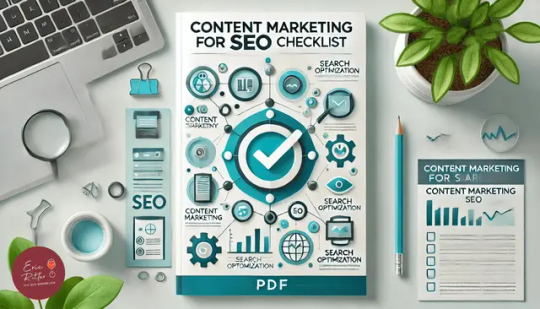#seo tips to improve website traffic
Explore tagged Tumblr posts
Text
Soar Higher in Google Search: SEO Tips and 2024 Trends
Soar Higher in Google Search: SEO Tips and 2024 Trends Keywords: SEO, Google ranking, search engine optimization, 2024 SEO trends, keyword optimization, content marketing, technical SEO, user experience, AI in SEO, local SEO In today’s digital landscape, ranking higher in Google search results is paramount for businesses of all sizes. With billions of searches performed daily, optimizing your…
#best SEO practices for 2024#how to rank higher in Google search#improve website SEO#increase organic traffic with SEO#SEO tips for small businesses
0 notes
Text
Keyword Mapping to SEO Optimize Your Website
Keyword mapping is a powerful SEO technique that can transform your website’s visibility and performance. By strategically aligning your content with the right keywords, you can improve your search rankings and outshine your competitors. In this comprehensive guide, we’ll explore the ins and outs of keyword mapping, equipping you with the knowledge and tools to take your online presence to new…
#content strategy#search engine optimization#search keywords#subham das#keyword mapping#SEO#website optimization#keyword research#digital marketing#SEO tips#on-page SEO#keyword strategy#SEO strategy#keyword planner#SEO tools#website ranking#organic traffic#keyword analysis#SEO guide#SEO best practices#SEO techniques#SEO keywords#SEO audit#SEO checklist#keyword mapping process#SEO success#keyword targeting#search ranking#SEO improvement#SEO trends
0 notes
Text
Semrush, A marketing Solution To Your Business

If your looking to boost your digital marketing, build brand recognition and enhance your online presence then look no further!
Semrush is a comprehensive digital marketing platform that is packed full of features and tools for pretty much everything related to digital marketing, from SEO and Pay Per Click (PPC) to content and social media marketing. Head over to my website to see what it could offer your business....
#fyp#foryou#learning#self improvement#new business#business#website traffic#website optimization#website development#marketing#seo optimization#seo#seo services#fypシ#fypage#work worklife buisness sidehustle idea amazon etsy affiliate marketing fyp foryou#business selfemployed work workingmum parents ideas tips marketing strategy fyp foryou
0 notes
Text
10 Essential Digital Marketing Tips to Boost Your Business in 2024
In today’s rapidly evolving digital landscape, businesses of all sizes must stay up-to-date with the latest marketing strategies. The internet has changed the way consumers interact with brands, and as we approach 2024, mastering digital marketing will be more critical than ever. To help you stay competitive and drive meaningful results, here are 10 essential digital marketing tips that will elevate your business in the coming year.
1. Optimise for Voice Search
With the growing popularity of voice-activated devices like Amazon’s Alexa, Google Assistant, and Apple’s Siri, voice search has become a key component of how people find information online. In fact, it's expected that over 50% of all searches will be voice-driven. Unlike traditional text-based searches, voice searches tend to be more conversational and long-tail.
To optimise your website for voice search, start by incorporating natural language into your SEO strategy. This means using question-based keywords that reflect how people speak, such as “Where can I find the best digital marketing tips?” Additionally, focus on featured snippets and providing concise, relevant answers, as these are often used by voice assistants to respond to queries.

2. Leverage Artificial Intelligence (AI) in Your Campaigns
Artificial Intelligence is transforming the way businesses approach digital marketing. From chatbots to data analytics, AI enables companies to better understand customer behavior, predict trends, and create highly personalized marketing experiences. AI-driven tools can automate tasks like email segmentation, content recommendations, and customer service interactions, allowing businesses to save time while improving engagement.
For example, AI-powered chatbots can enhance customer experiences by providing instant responses to common inquiries, even outside of business hours. AI can also help businesses optimise their ad campaigns by analysing large amounts of data and suggesting improvements based on performance.

3. Prioritise Video Marketing
Video content is now an indispensable part of any digital marketing strategy. By 2024, it’s estimated that video will account for 82% of all online traffic. This makes video marketing one of the most effective ways to capture your audience’s attention. Whether it’s through YouTube, Instagram Stories, TikTok, or live streaming, video allows you to engage customers in ways that text or images simply can’t.
To maximise the impact of your video content, focus on creating short, engaging videos that are informative and entertaining. Live video is also becoming more popular, with platforms like Instagram and Facebook offering live streaming capabilities that allow you to interact with your audience in real-time. Demonstrating your products or services, hosting Q&A sessions, or sharing behind-the-scenes content can help build a more personal connection with your audience.

4. Collaborate with Social Media Influencers
Influencer marketing is no longer just a trend—it’s a powerful tool for businesses to increase brand awareness and drive conversions. By partnering with influencers who have a loyal following, you can leverage their credibility and reach new audiences. In 2024, micro-influencers (influencers with smaller, highly engaged audiences) are expected to play a more significant role, as they often have more authentic interactions with their followers compared to larger influencers.
When selecting influencers to collaborate with, ensure they align with your brand’s values and target demographic. Authenticity is key—today’s consumers can easily spot a partnership that feels forced or inauthentic. Focus on building long-term relationships with influencers rather than one-off promotions for more meaningful engagement.

5. Enhance User Experience (UX) on Your Website
User experience is central to the success of any digital marketing strategy. A poorly designed website can drive away potential customers and negatively impact your search engine rankings. Google places a strong emphasis on Core Web Vitals, which measure aspects like page load speed, interactivity, and visual stability.
As we move into 2024, it’s essential to ensure that your website is optimised for both speed and mobile friendliness. More than 50% of web traffic now comes from mobile devices, so if your site isn’t mobile-friendly, you could be losing a significant portion of your audience. Focus on providing a seamless, intuitive experience with easy navigation and fast load times to keep visitors engaged.

6. Master SEO: Focus on High-Quality Content
Search Engine Optimisation (SEO) is a long-standing digital marketing technique that continues to evolve. As Google’s algorithms become more sophisticated, the emphasis has shifted from keyword stuffing to creating high-quality, informative content. In 2024, businesses should focus on producing valuable, long-form content that addresses the needs and pain points of their audience.
To improve your SEO, conduct thorough keyword research and create content that provides in-depth answers to commonly asked questions in your industry. Use internal linking to guide visitors to other relevant pages on your website and ensure that your content is updated regularly to remain fresh and relevant.

7. Invest in Paid Advertising
While organic reach is still valuable, the rise of paid advertising offers a more direct way to target specific audiences. Platforms like Google Ads, Facebook, and Instagram allow businesses to use highly targeted advertising to reach potential customers based on demographics, interests, and online behaviour.
In 2024, consider experimenting with a mix of search ads, social media ads, and display ads to diversify your strategy. Retargeting campaigns, which focus on users who have already visited your site, are particularly effective at converting potential customers who didn’t purchase their first visit.

8. Use Email Marketing to Nurture Leads
Email marketing remains one of the most effective ways to nurture leads and maintain customer relationships. In 2024, personalisation will be key to running successful email campaigns. Use behavioural data to send personalised emails based on your audience’s past interactions with your brand. Whether it's a product recommendation, an abandoned cart reminder, or a birthday discount, personalising your emails can significantly improve open and conversion rates.
Additionally, focus on building your email list organically and create engaging, mobile-friendly templates that grab attention. Incorporate dynamic content that adapts to the recipient’s preferences to make your emails more relevant and engaging.

9. Incorporate User-Generated Content (UGC)
User-generated content (UGC) is a powerful form of social proof that can influence purchase decisions. Customers are more likely to trust the opinions of their peers than traditional advertising. Encourage your customers to share their experiences with your products or services on social media, and showcase UGC on your website and marketing channels.
UGC can take the form of reviews, testimonials, photos, and videos from customers. By featuring authentic content from real users, you can build trust with potential customers and foster a sense of community around your brand.

10. Utilise Data Analytics to Drive Decisions
Data analytics is the foundation of a successful digital marketing strategy. By tracking the performance of your campaigns, you can make data-driven decisions that improve your ROI. Tools like Google Analytics, social media insights, and marketing automation platforms can provide valuable information on how your audience interacts with your content, website, and ads.
In 2024, focus on real-time analytics to track user behaviour and adjust your marketing strategies on the fly. Use data to identify trends, test new ideas, and continuously refine your approach to maximise results.

Conclusion
Digital marketing is an ever-changing field, and staying ahead of the trends is essential for business growth. By incorporating these 10 essential digital marketing tips, you’ll be well-prepared to navigate the challenges of 2024 and beyond. From optimising for voice search and embracing AI to mastering video marketing and enhancing your SEO efforts, each of these strategies will help you boost your business and stay ahead of the competition. Start implementing these tips today and watch your business soar to new heights in the digital world!
5 notes
·
View notes
Text

Starting an e-commerce business can be an exciting venture with immense potential. However, with the opportunities come challenges and uncertainties. Before diving into the world of online retail, it’s crucial to plan carefully and set a solid foundation. Here are some essential tips to consider before launching your e-commerce business:
1. Conduct Market Research
Understanding the market is fundamental to any successful business. Start by identifying your target audience and analyzing competitors. Research trends, customer preferences, and potential gaps in the market. Tools like Google Trends, social media analytics, and industry reports can provide valuable insights. This research will help you tailor your products or services to meet market demands and differentiate yourself from competitors.
2. Define Your Business Model
E-commerce offers various business models, such as B2C (Business to Consumer), B2B (Business to Business), C2C (Consumer to Consumer), and subscription-based models. Determine which model aligns with your goals and resources. Each model has its own set of challenges and requirements, so choose one that best fits your product or service and target market.
3. Create a Solid Business Plan
A comprehensive business plan serves as a roadmap for your e-commerce venture. Outline your business goals, strategies, target audience, marketing plan, financial projections, and operational plan. This document will not only guide your efforts but also help secure funding if needed. A clear plan can keep you focused and organized as you navigate the complexities of launching and running an e-commerce business.
4. Choose the Right E-Commerce Platform
Selecting the right e-commerce platform is crucial for the success of your online store. Popular platforms like Shopify, WooCommerce, Magento, and BigCommerce each offer unique features and capabilities. Consider factors such as ease of use, scalability, customization options, payment gateways, and integration with other tools. The platform should align with your business needs and provide a user-friendly experience for both you and your customers.
5. Develop a User-Friendly Website
Your website is the face of your e-commerce business. Ensure it’s designed to be user-friendly, visually appealing, and optimized for mobile devices. A clean, intuitive layout with easy navigation will enhance the shopping experience and reduce cart abandonment rates. Focus on high-quality images, detailed product descriptions, and a seamless checkout process. Additionally, implement search engine optimization (SEO) strategies to improve your site’s visibility in search engines.
6. Implement Secure Payment Processing
Security is a top priority in e-commerce. Customers need to trust that their payment information is safe. Choose a reputable payment gateway and ensure your website uses SSL certificates to encrypt data. Additionally, offer multiple payment options, including credit/debit cards, digital wallets, and other payment methods that are popular with your target audience.
7. Plan Your Logistics and Supply Chain
Efficient logistics and supply chain management are vital for e-commerce success. Develop a strategy for inventory management, warehousing, and shipping. Decide whether you’ll handle fulfillment in-house or partner with third-party logistics providers. Consider shipping options, delivery times, and costs. A smooth and reliable fulfillment process can significantly impact customer satisfaction and repeat business.
8. Craft a Marketing Strategy
Effective marketing is essential to drive traffic and sales to your e-commerce store. Develop a multi-channel marketing strategy that includes social media, email marketing, content marketing, and paid advertising. Create engaging content, run promotions, and leverage social media platforms to build brand awareness and attract customers. Monitor and analyze the performance of your marketing efforts to refine your strategies over time.
9. Focus on Customer Service
Exceptional customer service can set your e-commerce business apart from competitors. Provide multiple channels for customer support, such as live chat, email, and phone. Ensure timely responses to inquiries and resolve issues promptly. Building strong customer relationships and encouraging feedback can enhance customer loyalty and drive positive reviews.
10. Monitor and Adapt
The e-commerce landscape is constantly evolving. Regularly review your business performance, track key metrics, and gather customer feedback. Stay informed about industry trends and technological advancements. Be prepared to adapt your strategies and operations based on insights and changes in the market.
#ecommerce#marketing#business#digitalmarketing#ecommercebusiness#entrepreneur#onlineshopping#website#seo#webdesign#b#marketingdigital#onlinebusiness#branding#shopify#smallbusiness#socialmediamarketing#webdevelopment#online#amazon#shopping#onlinestore#onlineshop#design#ecommercewebsite#dropshipping
5 notes
·
View notes
Text
Keyword Research for SEO: What It Is & How to Do It

What is Keyword Research for SEO?
Keyword research for SEO is the foundation of any successful digital marketing services in Delhi strategy. It involves identifying the terms and phrases your target audience uses when searching online. By focusing on the right keywords, businesses can increase their visibility on search engines, attract qualified leads, and improve overall website performance.
Why is Keyword Research Important?
Increased Visibility: Proper keyword research ensures your website ranks higher in search engine results.
Better Targeting: By understanding user behavior, you can create content that aligns with what your audience is searching for.
Optimized Content Strategy: Keywords help shape your blog topics, landing pages, and ad copy.
Competitive Advantage: Analyzing your competitors' keyword strategies can refine your own approach.
For businesses like iWrite India offering digital marketing services in Delhi, this can be a game-changer in reaching potential clients locally and globally.
How to Conduct Keyword Research for SEO
Step 1: Understand Your Goals
Start by defining your objectives. Are you aiming for more traffic, leads, or conversions? Your keyword research strategy should align with these goals.
Step 2: Brainstorm Keyword Ideas
Think of potential search terms your audience might use. For example, someone looking for digital marketing services in Delhi might also search for "SEO agency in Delhi" or "social media management."
Step 3: Leverage the Best Keyword Research Tools
To refine your ideas, use tools that provide detailed insights:
Google Keyword Planner: Understand search volumes and competition.
Ahrefs: Analyze competitor keywords and backlinks.
SEMrush: Get a comprehensive view of trends and traffic potential.
Ubersuggest: Generate additional keyword suggestions.
AnswerThePublic: Discover questions people commonly search for.
Pro Tip: Long-tail keywords such as “best keyword research tool for beginners” have lower competition but higher conversion potential.
Step 4: Evaluate Keyword Metrics
When analyzing keywords, focus on:
Search Volume: How many people are searching for this term?
Keyword Difficulty (KD): How competitive is it to rank for this keyword?
Cost Per Click (CPC): Essential if you’re running PPC campaigns.
Search Intent: Is the user looking for information, a product, or a service?
Step 5: Map Keywords to Content
Once you’ve selected your keywords, assign them to specific pages or blog posts. For instance, use “keyword research for SEO” as the main focus for this blog while naturally integrating secondary keywords like “best keyword research tool” into appropriate sections.
Step 6: Prioritize Local SEO
If you're targeting a specific location, such as digital marketing services in Delhi, include location-based keywords in your content, meta descriptions, and headings.
Step 7: Continuously Update Your Keyword Strategy
SEO is not a one-time effort. Regularly revisit your keyword list and adapt to changing trends or search behaviors.
Top Tools for Effective Keyword Research
Google Keyword Planner: Great for beginners, offering search volumes and related keywords.
SEMrush: A powerful tool for tracking competitors and uncovering new opportunities.
Ahrefs: Provides in-depth insights into backlinks, keywords, and site audits.
Moz Keyword Explorer: User-friendly, with detailed keyword suggestions.
These tools ensure that your keyword strategy remains accurate and effective, whether you're optimizing content or running campaigns for digital marketing services in Delhi.
Keyword Research Made Easy
Keyword research for SEO is essential for enhancing visibility, driving organic traffic, and ensuring your content aligns with user intent. Mastering this process can significantly improve your online presence.
Book Your Free Consultance
Looking for expert assistance with keyword research and SEO? At iWrite India, we provide comprehensive digital marketing services in Delhi tailored to your business needs. Whether it’s optimizing your website or creating content that ranks, we’ve got you covered. Visit iWrite India to learn more or get started today!
FAQs
What is the role of search intent in keyword research?Search intent determines what a user is looking for—information, navigation, or purchase. Aligning your content with this intent improves relevance and engagement.
How can I find the best keyword research tool for my needs?Evaluate tools based on your goals. Beginners might prefer Google Keyword Planner, while advanced users benefit from SEMrush or Ahrefs for in-depth analysis.
Why should I use long-tail keywords in my SEO strategy?Long-tail keywords have lower competition and higher specificity. They are ideal for targeting niche audiences and increasing conversion rates.
How often should I perform keyword research?It’s recommended to revisit your keyword strategy every three to six months or when launching a new campaign to stay updated with trends.
What’s the difference between short-tail and long-tail keywords?Short-tail keywords are broad and competitive (e.g., "SEO"), while long-tail keywords are more specific and easier to rank for (e.g., "best keyword research tool for SEO beginners").
#iwrite india#Keyword Research#SEO#search engine optimization#keyword research for seo#best keyword research tool#digital marketing services in delhi#seo strategy#online marketing#content optimization
2 notes
·
View notes
Text
How Companies Can Improve in Content Marketing?
Content marketing helps businesses connect with their audience effectively. A strong strategy builds trust, drives traffic, and boosts sales. Companies can grow their brand by using smart approaches. Below are tips to improve content marketing.

Understand Your Audience
Knowing your audience is essential. Identify their needs, preferences, and challenges. This helps you create valuable content. Use surveys, social media polls, and website analytics to gather insights. Lawlor Media Group, a trusted Brand Strategy Agency New York, can assist with audience research.
Focus on creating tailored content for different audience segments. Personalization strengthens engagement and builds loyalty. Always keep your audience in mind during content creation.
Set Clear Goals
Define clear content marketing goals. These could include increasing traffic, boosting sales, or improving brand awareness. Having goals makes your strategy more focused.
Break your goals into smaller, actionable steps. For example, plan to publish blogs, videos, or social media posts weekly. PR Agencies NYC like Lawlor Media Group can help align your content goals with broader business objectives.
Create High-Quality Content
High-quality content stands out. Ensure your content is relevant, accurate, and valuable. Always check for grammar and spelling errors.
Add visuals, such as infographics or videos, to improve engagement. Use storytelling techniques to make your message memorable. For businesses in competitive markets like New York, Online Reputation Management New York services can ensure content enhances your online image.
Be Consistent
Consistency is key in content marketing. Stick to a schedule for posting content. Whether it’s daily, weekly, or monthly, consistency builds trust.
Develop a content calendar to stay organized. This ensures your brand stays active and visible. A reliable PR Agencies NYC partner, such as Lawlor Media Group, can help manage schedules effectively.
Optimize for SEO
Search Engine Optimization (SEO) improves your content’s visibility. Use relevant keywords in your blogs, articles, and videos. Include keywords naturally without overstuffing.
Optimize meta descriptions, headers, and images for better rankings. A strong SEO strategy drives organic traffic to your website. Work with a Brand Strategy Agency New York for expert guidance.
Leverage Social Media
Social media is crucial for content marketing. Platforms like Instagram, LinkedIn, and Twitter expand your reach. Post engaging content regularly to keep followers interested.
Use hashtags to improve visibility. Share behind-the-scenes updates or customer stories for a personal touch. For brands facing challenges, Crisis Management New York can help maintain a positive image on social media.
Measure Performance
Track your content marketing performance regularly. Use tools like Google Analytics or social media insights. These platforms show how well your content performs.
Pay attention to metrics like engagement, clicks, and conversions. Adjust your strategy based on the data. Agencies like Lawlor Media Group can analyze performance and refine your plan for success.
Engage with Your Audience
Responding to comments, messages, and feedback is vital. Engagement makes your audience feel valued. It builds stronger relationships and boosts loyalty.
Encourage user-generated content, such as reviews or testimonials. Respond promptly to any complaints to show your commitment. For public relations help, turn to PR Agencies NYC for expert support.
Experiment with Content Formats
Try different content formats to keep your audience interested. Mix blogs, videos, podcasts, and infographics. Diverse formats attract different audience types.
Stay updated with trends, like short-form videos or live streaming. Experimenting ensures your content remains fresh and engaging. For professional content guidance, contact a trusted Brand Strategy Agency New York like Lawlor Media Group.
Focus on Online Reputation
Your online reputation affects your content’s impact. Negative reviews or comments can harm your efforts. Invest in Online Reputation Management New York to maintain a positive brand image.
Respond to negative feedback professionally. Highlight positive reviews and testimonials in your content. A strong reputation strengthens your marketing strategy.
Prepare for Crisis Management
Crisis situations can affect your brand’s content marketing. Be prepared with a crisis management plan. Quick action protects your brand's reputation during challenges.
Work with Crisis Management New York experts to handle difficult situations effectively. A professional team ensures your messaging remains consistent and credible.
Collaborate with Experts
Collaborating with experienced agencies improves your content marketing. Professionals bring expertise, resources, and strategies to your campaigns.
Lawlor Media Group, a leading PR Agencies NYC firm, provides comprehensive services. Their expertise ensures your content marketing aligns with your business goals.
Conclusion
Improving content marketing requires clear goals, high-quality content, and consistent effort. Social media, SEO, and audience engagement are vital. Managing reputation and preparing for crises are also essential.
Partnering with a reliable agency like Lawlor Media Group ensures success. Their expertise in PR Agencies NYC, Brand Strategy Agency New York, and Online Reputation Management New York makes them a top choice. Follow these tips to strengthen your content marketing strategy.
#Lawlor Media Group#PR Agencies NYC#Brand Strategy Agency New York#Online Reputation Management New York#Crisis Management New York
2 notes
·
View notes
Text
How to Build a Strong Digital Brand: Key Strategies for Success

Building a strong digital brand is essential in today’s competitive online landscape. Whether you're a startup or an established business, a solid digital branding strategy can differentiate you from the competition and help you connect with your target audience. In this post, we'll cover the core elements of digital branding and share actionable strategies to improve your brand’s visibility and engagement online.
1. Define Your Brand Identity
Your brand identity is the foundation of all your digital marketing efforts. It includes your mission, values, visual style, and voice. To build a strong digital brand, start by clearly defining what your brand stands for and who your ideal customers are. Your brand's identity should resonate with your audience and communicate a consistent message across all platforms.
2. Leverage Social Media Platforms
Social media is one of the most powerful tools for digital branding. Platforms like Instagram, LinkedIn, and Twitter offer a space to showcase your brand’s personality, engage with followers, and build a community around your brand. Create a social media content calendar to ensure you're posting regularly and sharing a mix of content, including educational posts, behind-the-scenes glimpses, and user-generated content.
3. Consistent Messaging Across Channels
Brand consistency is key to building trust with your audience. Ensure your brand message, visual style, and tone of voice remain consistent across all your digital channels. This includes your website, social media, email marketing campaigns, and even customer service interactions. When your audience sees the same message across different touchpoints, it reinforces your brand’s credibility.
4. Optimize Your Website for SEO
A well-optimized website is essential for attracting traffic and converting visitors into customers. Invest time in keyword research to ensure your content ranks for the right terms. Focus on both on-page SEO (like title tags, meta descriptions, and internal linking) and off-page SEO (such as backlinks and social proof).
5. Use Content Marketing to Tell Your Brand Story
Content marketing is an effective way to build brand authority and connect with your audience on a deeper level. Share blog posts, case studies, videos, and infographics that tell your brand’s story and showcase your expertise. By providing valuable content, you position your brand as a trusted resource.
6. Monitor Analytics and Adjust
Digital marketing is an ongoing process, and monitoring your results is essential for improving your branding strategy. Use analytics tools to track key metrics like website traffic, social media engagement, and conversion rates. Regularly assess what's working and what’s not, and adjust your strategy accordingly to ensure continuous growth.
Conclusion
Building a digital brand requires strategic thinking, consistency, and an ongoing commitment to providing value to your audience. By defining your brand identity, leveraging social media, maintaining consistent messaging, optimizing for SEO, and using content marketing, you can create a powerful digital presence that resonates with your audience and stands out in a crowded marketplace.
Want more tips on digital branding and marketing strategies? Follow us for more insights on how to build and grow your online presence!
#Digital branding strategies#Brand identity definition#Social media marketing#SEO for digital brands#Content marketing for brands#Brand consistency online#Digital marketing success
2 notes
·
View notes
Text
Effective Strategies to Increase Organic Website Traffic in 2024
The digital landscape and growing organic website traffic is crucial for businesses seeking a competitive edge. Organic traffic, or the users who find your site via unpaid search engine results, often translates into high-quality leads and sustained growth. By focusing on strategies that emphasize relevance, user experience, and search engine optimization (SEO), you can steadily increase organic website traffic and attract engaged visitors. Here’s a look at some proven methods to drive organic traffic effectively in 2024.
1. Optimize for User-Centric Content
The cornerstone of attracting organic website traffic is creating high-quality, user-centered content. In 2024, search engines like Google prioritize websites that deliver helpful, valuable information. Identify the questions, pain points, and interests of your target audience, and tailor your content to address these needs comprehensively. This approach not only keeps visitors on your page longer but also encourages them to explore more of your site.
Utilize blog posts, guides, and case studies to present your expertise. Engaging content naturally leads to higher rankings, which can help increase organic website traffic significantly.
2. Conduct Keyword Research
Keyword research remains a fundamental part of SEO. Finding the right keywords to focus on can directly impact your website’s visibility in search results. Tools like Ahrefs, SEMrush, and Google Keyword Planner can help identify high-volume, low-competition keywords relevant to your niche.
When choosing keywords, look for phrases that your target audience is likely searching for. Incorporate these strategically into your content, titles, and meta descriptions. By doing so, your site is more likely to appear in search results and increase organic website traffic as a result.
3. Leverage Long-Tail Keywords
Long-tail keywords are often more specific and usually face less competition. While these keywords may attract lower search volumes, they are highly targeted, often leading to better engagement and higher conversions. For instance, instead of targeting a broad term like "digital marketing," you might focus on "digital marketing for small businesses" or "digital marketing tips for startups."
Using long-tail keywords effectively allows you to connect with users looking for niche information, helping you stand out among competitors and increase organic website traffic over time.
4. Improve Website Load Speed and Mobile Optimization
A fast-loading, mobile-friendly website is essential for retaining visitors. Search engines like Google use website speed and mobile responsiveness as key ranking factors. Websites that take more than a few seconds to load can experience high bounce rates, meaning users leave the page without interacting further.
Improving website speed through image compression, minimizing redirects, and leveraging browser caching can make a significant difference. Also, ensure that your site’s design is responsive so that it performs well on mobile devices. This approach enhances user experience and can help increase organic website traffic as users are more likely to return to a site that loads quickly and is easy to navigate.
5. Optimize On-Page SEO Elements
On-page SEO involves optimizing individual pages to rank higher in search engine results. Important on-page elements include title tags, meta descriptions, headers, and internal links. Each of these elements should be optimized with relevant keywords, including your primary keyword, increase organic website traffic.
Make your titles descriptive and compelling, as this is often the first thing users see in search results. Meta descriptions should be concise, informative, and also include your target keywords. Internal linking—linking to other pages within your website—can guide visitors to related content, keep them on your site longer, and improve overall navigation.
6. Update and Repurpose Existing Content
Your existing content is a valuable asset. Regularly updating older posts with fresh information, improved readability, and current statistics can boost their ranking potential. Repurposing content—such as turning a blog post into a video or an infographic—can also expand your reach and bring in new visitors.
When you keep content fresh and relevant, it’s more likely to gain traction on search engines and social media, helping you increase organic website traffic without creating entirely new content each time.
7. Enhance User Experience (UX)
User experience (UX) is an increasingly important factor for search engines. A site that is easy to navigate, visually appealing, and provides value to users will generally rank higher. UX improvements, such as intuitive navigation, readable fonts, and engaging visuals, can significantly impact how visitors interact with your website.
A positive user experience encourages visitors to stay longer, reduces bounce rates, and increases the likelihood of visitors returning—all contributing to a boost in organic website traffic.
8. Build Backlinks from Reputable Sources
Backlinks, or links to your site from other websites, remain a vital part of SEO. Backlinks from reputable, high-authority websites act as endorsements for your site, signaling to search engines that your content is valuable. Reach out to industry-related sites, blogs, and influencers for guest posting opportunities or collaborations that can provide valuable backlinks.
Consistently working on your backlink profile helps increase organic website traffic by improving your website’s authority and search ranking.
9. Utilize Social Media for Content Distribution
While social media traffic itself isn’t classified as organic, it can indirectly help by increasing your content’s visibility and encouraging shares, which can lead to backlinks. Promoting your blog posts, videos, or other content on platforms where your audience is active can expand your reach and drive traffic back to your site.
When shared widely, high-quality content can gain traction, helping to increase organic website traffic as people discover and share your posts.
10. Track Your Analytics and Optimize
Regularly tracking your site’s performance through tools like Google Analytics and Google Search Console helps you understand what’s working and where there’s room for improvement. By identifying the types of content, keywords, and sources that drive the most traffic, you can make data-driven adjustments to your strategy.
Optimization based on performance insights is key to ongoing growth and can help increase organic website traffic steadily over time.
2 notes
·
View notes
Text
How Digital Marketing Training Can Help You Start Your Own Business

Starting your own business in today’s digital age means navigating a complex online landscape. Consumers are constantly engaging online, which means a strong digital presence is essential for any new business. However, understanding and mastering the tools and strategies required for effective digital marketing can be challenging without the right training. This is where a digital marketing training institute becomes invaluable. With the right digital marketing skills, you can drive your business's growth from the ground up.
In this guide, we’ll explore how digital marketing training can provide a solid foundation for launching a business. By examining core skills, tools, strategies, and expert tips, you’ll understand how digital marketing training can be a game-changer for entrepreneurs.
1. Building a Strong Online Presence
The first and most essential step in creating a successful business is establishing a credible online presence. Digital marketing training teaches you the importance of branding, website development, and content creation, helping you build a brand that resonates with your target audience.
Personal Branding: Training will help you identify your unique value proposition and communicate it effectively.
Website Development Basics: Many digital marketing training programs cover web development basics, helping you create a user-friendly, SEO-optimized website.
Content Creation: Content is the backbone of any digital strategy. Learning how to create engaging blog posts, videos, and infographics will attract and retain customers.
Expert Tip:
Use free tools like Canva for graphic design and WordPress or Wix for creating a basic website to get started.
2. Understanding SEO to Attract Organic Traffic
Search Engine Optimization (SEO) is crucial to ensure that your business can be found by potential customers. A digital marketing training institute will provide comprehensive knowledge on how SEO works, including keyword research, on-page SEO, and technical SEO aspects.
Keyword Research: Learn to identify and target keywords relevant to your business that your potential customers are searching for.
On-Page SEO: Training will cover techniques like optimizing titles, headers, and meta descriptions to improve search engine rankings.
Technical SEO: Advanced training may include aspects like website speed optimization, mobile compatibility, and sitemaps, which are essential for ranking well on search engines.
Expert Tip:
Tools like Ahrefs, SEMrush, and Google Keyword Planner can assist in finding and analyzing keywords to help you rank higher on search engines.
3. Utilizing Social Media to Build Brand Awareness
Social media platforms are powerful tools for promoting a business, but effective social media marketing requires strategy. Digital marketing training will teach you to create engaging content, understand analytics, and develop ad campaigns to increase reach.
Platform Selection: Training will help you determine which social media platforms align best with your target audience (e.g., LinkedIn for B2B or Instagram for younger demographics).
Content Strategy: You’ll learn how to craft posts that engage followers, tell your brand’s story, and drive interactions.
Advertising Campaigns: Learn how to use paid advertising effectively on platforms like Facebook, Instagram, and LinkedIn, helping you reach a wider audience at a relatively low cost.
Expert Tip:
Use scheduling tools like Hootsuite or Buffer to manage and track your social media posts, saving time and ensuring consistency.
4. Harnessing Email Marketing for Customer Retention
Email marketing is a highly effective channel for keeping customers engaged and building long-term loyalty. Through digital marketing training, you’ll understand the nuances of email marketing, from list building to crafting effective email campaigns.
Building an Email List: Learn strategies for collecting customer emails through website sign-ups, social media, and landing pages.
Crafting Email Campaigns: Training often covers how to write compelling emails, create drip campaigns, and send personalized messages.
Analyzing Email Performance: You’ll learn how to use analytics to measure open rates, click-through rates, and conversions, enabling you to refine your strategy.
Expert Tip:
Platforms like Mailchimp and Constant Contact are user-friendly options for beginners, offering templates, analytics, and automation options.
5. Leveraging Content Marketing to Educate and Engage
Content marketing is an excellent way to establish authority in your field and attract customers through valuable content. A digital marketing training institute will help you understand how to create a content calendar, generate relevant topics, and repurpose content across different channels.
Creating a Content Plan: Training will teach you to create a strategic plan that includes blog posts, videos, podcasts, and infographics.
SEO-Optimized Content: Learn how to structure content to rank well on search engines, helping your business attract organic traffic.
Repurposing Content: With guidance, you can maximize content by repurposing a blog post into social media snippets, videos, and newsletters.
Expert Tip:
Try using tools like Grammarly for proofreading and Yoast SEO to optimize content for SEO directly within WordPress.
6. Understanding Analytics to Make Data-Driven Decisions
Knowing how to interpret data is crucial for evaluating the success of your digital marketing efforts. Most digital marketing training programs include a module on analytics, focusing on metrics that matter most to new business owners.
Google Analytics: Learn how to track website performance, including visitor demographics, behavior, and traffic sources.
Social Media Analytics: Training will guide you on using platform-specific analytics to measure reach, engagement, and conversion on platforms like Facebook and Instagram.
Conversion Rate Optimization (CRO): Understand how to analyze conversion rates and make adjustments to improve customer acquisition.
Expert Tip:
Set up Google Analytics and Google Search Console from day one to monitor performance and make informed decisions based on real data.
7. Running Effective Digital Advertising Campaigns
Digital advertising can give new businesses an instant boost by reaching specific demographics. A digital marketing training program will teach you how to run effective campaigns on platforms like Google Ads, Facebook Ads, and LinkedIn Ads.
Creating Ad Campaigns: Training covers campaign structure, audience targeting, and budgeting.
Retargeting Ads: You’ll learn how to use retargeting to re-engage potential customers who have already visited your site.
Analyzing Ad Performance: Most programs cover ad metrics, allowing you to understand cost-per-click (CPC), conversion rates, and return on ad spend (ROAS).
Expert Tip:
When starting, allocate a small budget for A/B testing on platforms like Google Ads or Facebook Ads to determine what works best for your target audience.
8. Developing a Holistic Digital Marketing Strategy
A successful digital marketing strategy combines multiple channels and tactics to drive brand awareness and sales. Digital marketing training provides an understanding of how each marketing channel works together and teaches you how to develop an integrated strategy that aligns with your business goals.
Setting Goals and KPIs: Training will help you define measurable goals and key performance indicators (KPIs) to track progress.
Aligning Marketing Channels: You’ll learn to integrate SEO, social media, content, and paid ads into a cohesive strategy.
Tracking Progress and Adapting: Training emphasizes flexibility, encouraging you to continuously assess and adjust strategies based on results.
Expert Tip:
Tools like Trello or Asana can help you organize your marketing tasks, assign deadlines, and track progress effectively.
9. Gaining Industry Insights and Keeping Up with Trends
Digital marketing is constantly evolving. Enrolling in a digital marketing training institute helps you stay current on trends, tools, and best practices, which is essential for success in a competitive business landscape.
Industry Updates: Many training programs offer regular updates on industry trends, such as AI in marketing, voice search, and algorithm changes.
Networking Opportunities: Being part of a training institute often allows you to network with industry professionals, opening doors for partnerships, mentorships, and collaborations.
Access to Resources: Training institutes often provide access to exclusive resources like webinars, workshops, and case studies that keep you ahead of the curve.
Expert Tip:
Follow reputable sources like Search Engine Journal and HubSpot for regular industry updates and best practices.
Conclusion
Starting a business can be daunting, but with the right digital marketing training, you’ll have the tools and knowledge to succeed. A digital marketing training institute equips you with essential skills, from SEO and content creation to analytics and advertising, that can help drive growth for your new business. With guidance on creating a solid online presence, engaging with customers, and making data-driven decisions, digital marketing training is a valuable investment for aspiring entrepreneurs. By understanding and leveraging digital marketing strategies, you can position your business for success in a rapidly evolving digital landscape.
#digital marketing#search engine optimization#social media marketing#smm#search engine marketing#seo
2 notes
·
View notes
Text

In the realm of SEO, grasping the concept of Domain Authority (DA) is essential for anyone aiming to boost their website's visibility. This informative blog post from Softloom IT Training examines what Domain Authority is, its significance in search engine rankings, and practical methods to enhance it. As a key metric created by Moz, the article explores how DA assesses a site's credibility based on various elements, such as backlinks and site structure.
The post provides actionable advice for increasing your Domain Authority, highlighting the importance of high-quality inbound links, effective content marketing, and overall SEO health. Whether you’re an experienced marketer or just starting out, this guide offers valuable insights to help you evaluate and improve your website’s performance in search results.
For businesses aiming to elevate their online presence, understanding and monitoring Domain Authority can provide valuable insights into the effectiveness of their SEO efforts. While DA is not an absolute metric, it serves as a comparative tool that can guide digital marketing decisions. When used alongside other metrics, such as Page Authority and organic traffic data, DA offers a comprehensive perspective on a website's performance, helping organizations refine their strategies and achieve better search engine rankings.
Explore the full article to discover how enhancing your Domain Authority can lead to improved rankings and greater organic traffic. Don’t miss these essential tips to strengthen your online presence and reach your business objectives! Read the full post here.
3 notes
·
View notes
Text

SEO Audit For E-commerce website
In the competitive world of e-commerce, an effective SEO audit is crucial for standing out and driving traffic to your website. This blog post provides a comprehensive guide to conducting a thorough SEO audit specifically tailored for e-commerce platforms. It outlines the importance of optimizing product listings, enhancing site structure, and improving loading speeds, which can significantly impact your search engine rankings and user experience.
The article explores essential metrics to examine, including organic traffic, keyword positions, and conversion rates. It highlights common pitfalls that e-commerce websites often face, like duplicate content and poor mobile optimization, and offers practical solutions to address these issues. By following the outlined steps, you can identify areas for improvement and implement strategies that lead to better visibility and higher sales.
Moreover, the blog emphasizes the importance of staying updated with SEO trends and best practices to maintain your competitive edge. With actionable tips and insights, this post serves as a valuable resource for business owners and marketers looking to enhance their online presence. Whether you're new to e-commerce or seeking to refine your existing strategies, this guide is a must-read for anyone serious about maximizing their website's potential.
4 notes
·
View notes
Text

In this blog post, we dive deep into how Google Analytics can be a game-changer for your SEO strategy. Whether you're a beginner or an experienced digital marketer, mastering the insights from Google Analytics is crucial for optimizing your website and boosting your rankings. From tracking traffic sources to monitoring user behavior, we'll explore how this tool provides actionable data that can shape your SEO efforts. Learn how to set up goals, track conversions, and identify which pages need improvement. Don't miss out on essential tips for leveraging Google Analytics to drive more organic traffic to your site!
Google Analytics is more than just a tool for tracking pageviews—it offers powerful insights into how visitors are interacting with your site. By understanding key metrics like bounce rate, session duration, and pages per session, you can assess the quality of your content and identify areas that may need adjustment. Additionally, by examining acquisition data, you'll learn where your traffic is coming from—whether it's organic search, paid ads, or social media—and use that information to focus your SEO efforts on channels that deliver the most value.
Lastly, we'll guide you through setting up custom reports and dashboards that cater specifically to your SEO goals. With Google Analytics’ ability to track user journeys and conversion paths, you can pinpoint which keywords, landing pages, or actions are driving the most engagement and conversions. By taking a data-driven approach, you’ll be able to refine your SEO strategy to target the right audience and improve your site’s performance over time. Whether you're looking to improve site navigation or increase your organic rankings, this guide will show you how to harness Google Analytics for actionable SEO insights.
3 notes
·
View notes
Text
The Ultimate SEO Checklist for Your Shopify Store
In today’s competitive eCommerce landscape, having a visually appealing Shopify store isn’t enough. To attract potential customers, you need a solid SEO strategy. Search Engine Optimization (SEO) helps your online store rank higher in search engine results, increasing visibility and driving organic traffic. Here’s your ultimate SEO checklist for optimizing your Shopify store.
1. Keyword Research
Start with thorough keyword research. Use tools like Google Keyword Planner or SEMrush to identify keywords relevant to your products. Focus on long-tail keywords that reflect your specific offerings, as they often have less competition and higher conversion rates.
2. Optimize Product Titles and Descriptions
Once you have your keywords, incorporate them naturally into your product titles and descriptions. Ensure that your titles are clear and descriptive, and that your descriptions provide valuable information that helps customers make purchasing decisions.
3. Use Alt Text for Images
Images are crucial in eCommerce, but they also need to be optimized for SEO. Use descriptive alt text for every image, incorporating relevant keywords. This not only helps search engines understand your images but also improves accessibility for visually impaired users.
4. Create SEO-Friendly URLs
Your store’s URLs should be simple, descriptive, and include relevant keywords. For example, instead of a URL like shopify.com/product123, use shopify.com/organic-cotton-tshirt. This improves both SEO and user experience.
5. Enhance Site Speed
A fast-loading website is vital for retaining customers and improving SEO rankings. Use tools like Google PageSpeed Insights to analyze your site’s speed and make necessary improvements, such as optimizing images and minimizing JavaScript.
6. Mobile Optimization
Ensure your Shopify store is mobile-friendly. With a significant portion of online shopping done on mobile devices, a responsive design is essential for both user experience and SEO.
7. Implement Internal Linking
Internal links help search engines understand the structure of your site and keep users engaged. Link relevant products, blog posts, and categories within your store to improve navigation and SEO.
8. Utilize Schema Markup
Schema markup enhances your store’s appearance in search results. Implementing this code helps search engines understand your content better and can lead to rich snippets, improving click-through rates.
9. Monitor Analytics
Use tools like Google Analytics and Shopify Analytics to track your store’s performance. Monitor metrics like traffic sources, bounce rates, and conversion rates to identify areas for improvement.
10. Build Quality Backlinks
Lastly, focus on building quality backlinks. Reach out to influencers, bloggers, and industry-related websites to gain links back to your store. Quality backlinks improve your domain authority and help boost search rankings.
Conclusion
Optimizing your Shopify store for SEO is an ongoing process that requires dedication and strategy. By following this ultimate SEO checklist, you’ll enhance your online visibility, attract more visitors, and ultimately drive sales. Start implementing these tips today and watch your Shopify store thrive!
#SEO#Shopify#eCommerce#Digital Marketing#Website Optimization#Online Store#SEO Checklist#Search Engine Optimization#Shopify Tips#Marketing Strategy
2 notes
·
View notes
Text
Search Engine Optimization
Search Engine Optimization (SEO) is an essential aspect of digital marketing. It involves optimizing web pages to improve their visibility on search engines like Google, Bing, and Yahoo. As businesses increasingly move online, understanding SEO becomes crucial for attracting organic traffic and staying competitive. In this blog, we'll explore what SEO is, its key components, strategies for implementation, and answers to some frequently asked questions.
Understanding SEO
Definition of SEO
SEO is the practice of enhancing a website’s structure and content to rank higher in search engine results pages (SERPs). It focuses on increasing both the quantity and quality of organic traffic. By improving visibility, businesses can connect with potential customers actively searching for their products or services.
The Importance of SEO
With millions of websites on the internet, standing out is vital. Most users tend to click on the first few results on a search engine. If your site is not optimized, you risk losing potential customers to competitors who rank higher. Effective SEO can lead to increased visibility, more traffic, and higher conversion rates.
Key Components of SEO
SEO consists of several components, which can be broadly categorized into three main areas: on-page SEO, off-page SEO, and technical SEO.
On-Page SEO
On-page SEO refers to the strategies applied directly to the website itself. Key elements include:
Content Quality: Quality content is essential for engaging users and satisfying search intent. Using keywords strategically helps search engines understand your content’s relevance.
Keyword Optimization: Identifying and using relevant keywords is crucial. Understanding what your audience searches for helps you create targeted content.
Meta Tags: Titles and meta descriptions provide a summary of your web pages. Optimizing these tags helps improve click-through rates from search results.
Off-Page SEO
Off-page SEO involves activities conducted outside your website to improve its authority and reputation. Key strategies include:
Backlinks: Acquiring links from reputable sites boosts your website's credibility. Search engines view backlinks as endorsements, which can enhance your rankings.
Social Media Engagement: Sharing your content on social platforms increases visibility and drives traffic to your website. Active engagement can lead to more shares and backlinks.
Technical SEO
Technical SEO focuses on the backend of your website. Key elements include:
Site Speed: A fast-loading site enhances user experience and improves search rankings. Google prioritizes sites that load quickly.
Mobile Friendliness: With the rise of mobile browsing, having a responsive design is crucial. A mobile-friendly site ensures users can access content on any device.
Secure Website (HTTPS): Security is a top priority for search engines. Implementing HTTPS can improve your ranking and build trust with users.
SEO Strategies for Implementation
Implementing effective SEO strategies can significantly impact your online presence. Here are some actionable tips:
Conduct Keyword Research
Identify relevant keywords that your target audience is searching for. Use tools like Google Keyword Planner, Ahrefs, or SEMrush to discover popular search terms. Focus on long-tail keywords, which often have less competition and higher conversion rates.
Create High-Quality Content
Content is king in the world of SEO. Regularly publish valuable, informative, and engaging content that answers your audience's questions. Incorporate the keyword “what is entertainment” naturally into your content, maintaining a keyword density of 1 to 3%. This helps attract users interested in various entertainment topics.
Optimize Your Website’s Structure
A well-structured website enhances user experience and makes it easier for search engines to crawl. Use clear headings, logical categories, and a user-friendly URL structure. Ensure that your site is easy to navigate, which keeps visitors engaged.
Build Backlinks
Invest time in building quality backlinks from reputable sources. Guest blogging, collaborations, and outreach can help you acquire valuable links. The more authoritative sites link to you, the more credible your site becomes in the eyes of search engines.
Monitor and Analyze Performance
Regularly analyze your website's performance using tools like Google Analytics and Google Search Console. Track metrics such as organic traffic, bounce rates, and keyword rankings. Adjust your strategies based on data insights to continually improve your SEO efforts.
Common SEO Myths
Despite its importance, many misconceptions about SEO persist. Here are a few common myths debunked:
SEO is a One-Time Task
Many believe that SEO is a one-time effort. In reality, SEO requires ongoing attention. Search engine algorithms change frequently, so continuous optimization is necessary to maintain and improve rankings.
H3: More Keywords Mean Better Rankings
While keywords are essential, stuffing your content with them can harm your rankings. Quality over quantity matters. Focus on creating valuable content that naturally incorporates keywords.
Social Media Doesn’t Affect SEO
While social media itself is not a direct ranking factor, it can significantly influence your SEO efforts. Increased visibility on social platforms can lead to more backlinks and traffic, indirectly improving your rankings.
FAQs About SEO
FAQ 1: How long does it take to see results from SEO?
SEO is a long-term strategy. It can take several months to see significant improvements in rankings and traffic. Patience and consistency are key.
FAQ 2: Can I do SEO on my own, or should I hire a professional?
While basic SEO practices can be implemented by anyone, hiring a professional can yield better results, especially for competitive industries. Professionals have the expertise and tools to optimize your site effectively.
FAQ 3: Is SEO the same as SEM?
No, SEO (Search Engine Optimization) focuses on organic traffic, while SEM (Search Engine Marketing) includes paid advertising. SEM encompasses strategies that involve paying for visibility, like Google Ads.
FAQ 4: What is the role of content in SEO?
Content plays a crucial role in SEO. High-quality, relevant content attracts visitors and encourages them to stay longer, signaling to search engines that your site is valuable. Incorporating keywords like “what is entertainment” into your content helps connect with your audience.
FAQ 5: Are backlinks still important for SEO?
Yes, backlinks remain a critical component of SEO. They signal to search engines that your content is credible and worth referencing, improving your site’s authority and rankings.
Conclusion
SEO is an ever-evolving field that plays a vital role in digital marketing. Understanding its components—on-page, off-page, and technical—is essential for creating effective strategies. By focusing on high-quality content, optimizing your site, and building backlinks, you can enhance your online visibility and attract more organic traffic.
As the digital landscape continues to grow, staying updated on SEO best practices will ensure your business remains competitive. By implementing these strategies and addressing common misconceptions, you can navigate the complexities of SEO and leverage its benefits. Remember, the journey may take time, but the rewards are well worth the effort. Embrace the power of SEO to drive your business forward in the digital age.
#marketing#digital marketing#seo services#digital marketing services#online marketing#marketing agency
2 notes
·
View notes
Text
5 Tips to Grow and Expand Your Business
Growing and expanding your business requires strategic planning, consistent effort, and the ability to adapt to changing market conditions. Here are five tips to help you achieve business growth:
1. Enhance Your Online Presence
Develop a Professional Website: Ensure your website is user-friendly, mobile-responsive, and optimized for search engines (SEO).
Leverage Social Media: Utilize platforms like Facebook, Instagram, LinkedIn, and Twitter to engage with your audience, promote your products or services, and build brand awareness.
Content Marketing: Create valuable content such as blog posts, videos, and infographics that address your audience's needs and interests. This can drive traffic to your site and establish your authority in your industry.
2. Focus on Customer Experience
Understand Customer Needs: Conduct surveys, gather feedback, and analyze customer behavior to better understand their needs and preferences.
Improve Customer Service: Ensure your customer service is top-notch. Prompt responses, personalized interactions, and going the extra mile can turn customers into loyal advocates.
Loyalty Programs: Implement loyalty programs to reward repeat customers, encouraging them to continue doing business with you.
3. Expand Your Product or Service Line
Market Research: Conduct thorough market research to identify gaps in the market or areas where customer demand is high.
Innovation: Develop new products or services that complement your existing offerings. Innovate based on customer feedback and market trends.
Test and Iterate: Before a full-scale launch, test new offerings with a small segment of your audience, gather feedback, and make necessary adjustments.
4. Form Strategic Partnerships
Identify Potential Partners: Look for businesses that complement your own and have a similar target audience.
Mutual Benefits: Create partnerships that offer mutual benefits, such as co-marketing efforts, joint ventures, or bundled offerings.
Networking: Attend industry events, join business associations, and actively network to form valuable connections that can lead to partnerships and growth opportunities.
5. Invest in Technology and Automation
Customer Relationship Management (CRM) Systems: Implement a CRM system to manage customer interactions, sales, and marketing efforts more efficiently.
Marketing Automation: Use marketing automation tools to streamline your email marketing, social media posting, and lead generation activities.
Data Analytics: Invest in data analytics to track key performance indicators (KPIs), understand market trends, and make data-driven decisions.
#BusinessGrowth#Entrepreneurship#SmallBusiness#Startup#Success#Innovation#Marketing#DigitalMarketing#OnlineBusiness#CustomerExperience#BrandBuilding#Ecommerce#BusinessDevelopment#Networking#TechTrends#ContentMarketing#SocialMediaMarketing#CustomerSatisfaction#GrowthStrategy#BusinessExpansion#GrowthUper#ppcbappi
4 notes
·
View notes